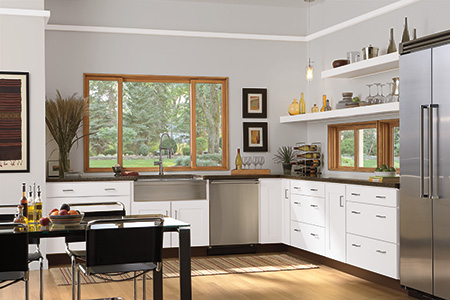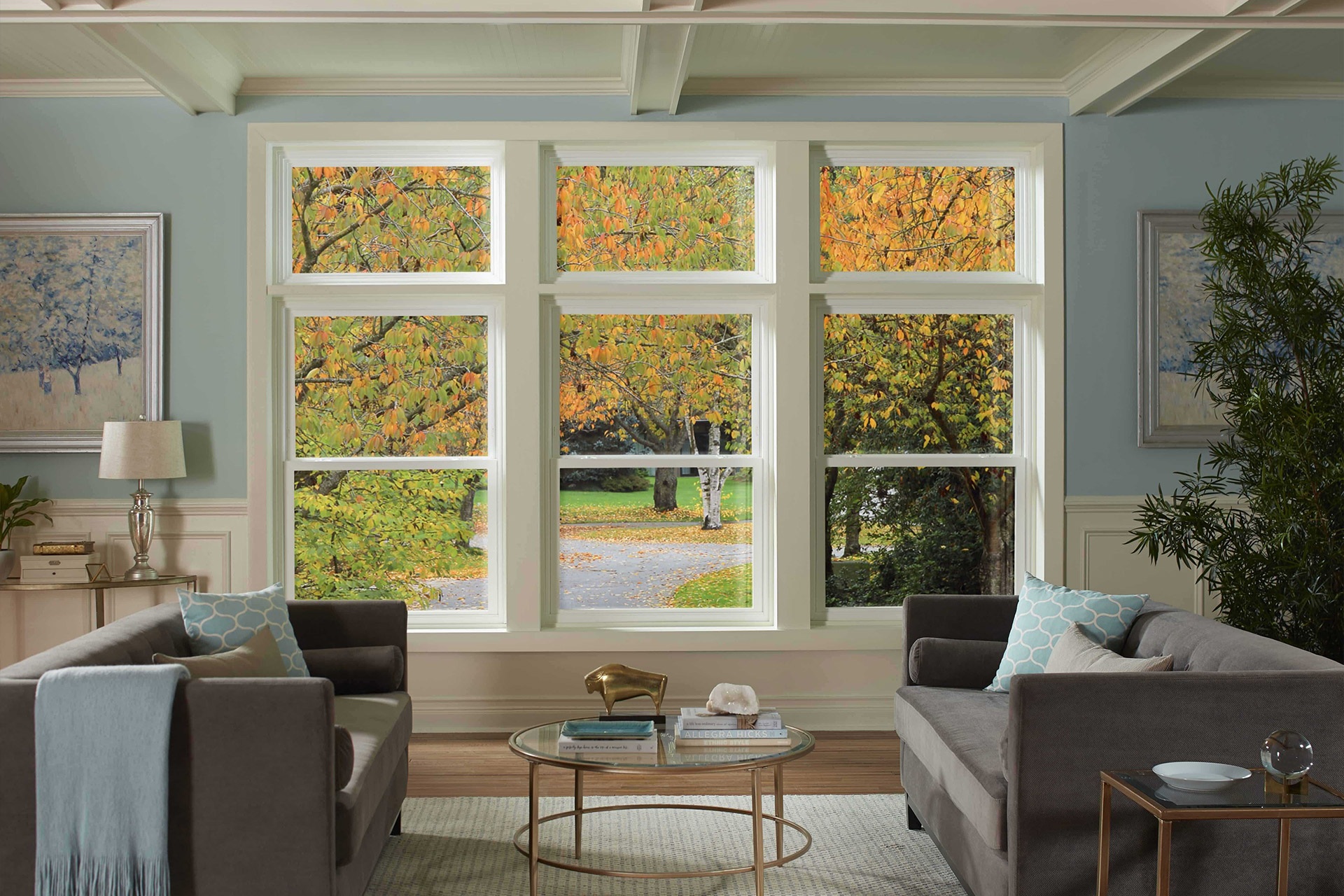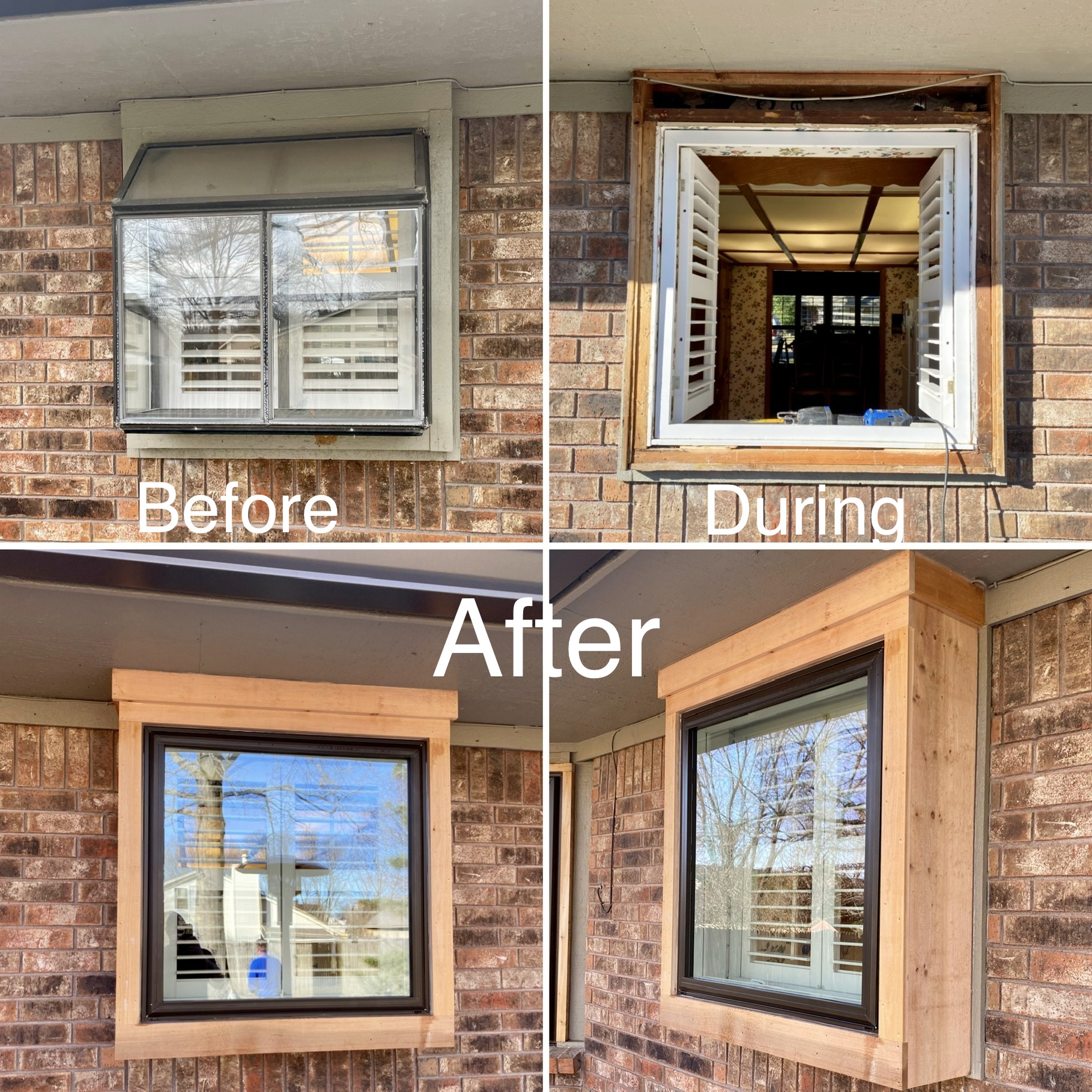Woodlands Window Replacement Solutions for Elegant Residences
Wiki Article
Upgrade Your Home With Energy-Efficient Home Window Replacements
In the realm of home enhancement, the choice to upgrade to energy-efficient window substitutes can substantially influence both the capability and looks of a house (window replacement). As home owners look for means to enhance the efficiency and sustainability of their living rooms, the selection of home windows plays an essential role in achieving these goals. Past the surface area level of mere appearances, energy-efficient home windows offer a wide variety of advantages that go past plain aesthetic charm. With a mindful choice procedure that thinks about various elements, from glass kinds to installation techniques, starting this home upgrade journey could show to be a transformative venture.Advantages of Energy-Efficient Windows

The installation of energy-efficient windows offers substantial savings on energy bills while improving environmental sustainability. Energy-efficient windows are designed to reduce heat loss and gain, reducing the demand for heating and cooling down systems to function overtime. By effectively shielding the home, these home windows help maintain a comfy indoor temperature year-round, causing reduced energy intake and reduced utility costs. In addition, energy-efficient home windows can assist manage dampness degrees within the home, decreasing the threat of mold and mildew and mildew growth.
Beyond the economic benefits, energy-efficient windows add to environmental sustainability by lowering carbon emissions connected with energy manufacturing. By reducing power usage, these windows help mitigate the ecological influence of cooling, heating, and lighting domestic rooms. This reduction in power consumption plays an essential duty in combating climate modification and advertising a greener future for generations to come. Generally, investing in energy-efficient home windows not only enhances the comfort and effectiveness of a home but additionally lines up with environmentally mindful practices.
Types of Energy-Efficient Glass
Various innovative sorts of energy-efficient glass offer one-of-a-kind properties that deal with different demands and choices in boosting the sustainability and effectiveness of structures. Low-emissivity (Low-E) glass is a prominent option created to reduce the amount of ultraviolet and infrared light that can pass with the glass, therefore decreasing warmth transfer. This sort of glass helps preserve a consistent indoor temperature level, minimizing the demand for home heating or cooling systems, and eventually reducing energy expenses. Another cutting-edge alternative is spectrally discerning glass, which permits noticeable light to go through while obstructing specific sorts of infrared radiation. This aids in keeping a comfortable interior setting while decreasing warmth gain. Triple-pane glass, containing three layers of glass with insulating gas in between them, supplies enhanced thermal insulation, making it extremely energy-efficient. In addition, self-cleaning glass with a special covering that breaks down and loosens up dirt when revealed to sunshine can decrease maintenance requirements and keep home windows looking clean. Each kind of energy-efficient glass provides unique advantages, enabling home owners to choose one of the most suitable option based upon their details needs and objectives.Variables to Consider When Selecting
When contemplating energy-efficient home window replacements, it is imperative to thoroughly examine particular variables that line up with your sustainability purposes and desired power financial savings. One critical element to consider is the home window's power efficiency scores, such as the U-factor and Solar Heat Gain Coefficient (SHGC) The Cypress window replacement U-factor procedures how well the window protects, with reduced numbers indicating much better insulation, while the SHGC shows the home window's capacity to block warmth from sunlight. Furthermore, the home window framework material plays a considerable function in power effectiveness. Materials like fiberglass, plastic, or timber with thermal breaks are outstanding choices for minimizing warmth transfer. Another important consideration is the home window design and orientation concerning sunlight direct exposure. Choosing the right window design and tactically positioning them can optimize natural light while minimizing heat gain or loss. Last but not least, installation top quality is crucial to guaranteeing the windows do as meant. Proper installation aids stop air leak, ensuring optimum energy performance. By carefully reviewing these factors, you can pick energy-efficient home windows that improve convenience, lower power prices, and profit the atmosphere.Installation and Maintenance Tips

Routine upkeep is key to protecting the efficiency of your energy-efficient windows. Inspect the weather-stripping and seals for any tears or gaps and change them if required to maintain the home windows' power efficiency. Woodlands window replacement.
In enhancement, lubricate moving parts such as joints and locks to make sure smooth procedure. By following these setup and maintenance pointers, you can improve the energy performance of your home and lengthen the lifespan of your energy-efficient home windows.
Cost-Benefit Analysis of Upgrading

Energy-efficient home windows are designed to lessen warm transfer, reducing the requirement for heating and cooling down systems to burn the midnight oil. This can bring about considerable cost savings on energy costs, specifically in areas with extreme temperatures. Furthermore, energy-efficient home windows can boost the total value of your home, making it a lot more attractive to prospective buyers if you make a decision to offer in the future.
When computing the cost-benefit analysis, consider the prospective financial savings on power bills, any type of offered motivations or refunds, and the life-span of the windows. While the preliminary expense might be greater, the lasting savings and benefits of energy-efficient home windows make them a wise financial investment for property owners seeking to boost their residential property's power performance and value.

Conclusion
Finally, updating to energy-efficient home window replacements uses numerous benefits such as decreased energy consumption, enhanced convenience, and expense financial savings. By choosing the ideal sort of energy-efficient glass and considering variables like framework product and installation, house owners can make best use of the performance of their home windows. Routine upkeep and appropriate installment are vital for long-lasting efficiency. Generally, the cost-benefit analysis of updating to energy-efficient windows shows that the initial financial investment can cause considerable cost savings in the future.When pondering energy-efficient home window substitutes, it is crucial to very carefully assess details variables that line up with your sustainability goals and desired energy cost savings. The U-factor steps just how well the window insulates, with reduced numbers suggesting better insulation, while the SHGC suggests the window's capacity to block warmth from sunlight. By meticulously assessing these factors, you can choose energy-efficient home windows that improve convenience, decrease power expenses, and benefit the environment.
While energy-efficient home windows might have a greater ahead of time cost compared to standard windows, the lasting advantages often surpass the preliminary financial investment.In conclusion, updating to energy-efficient home window replacements uses various advantages such as decreased energy consumption, increased convenience, and cost financial savings.
Report this wiki page